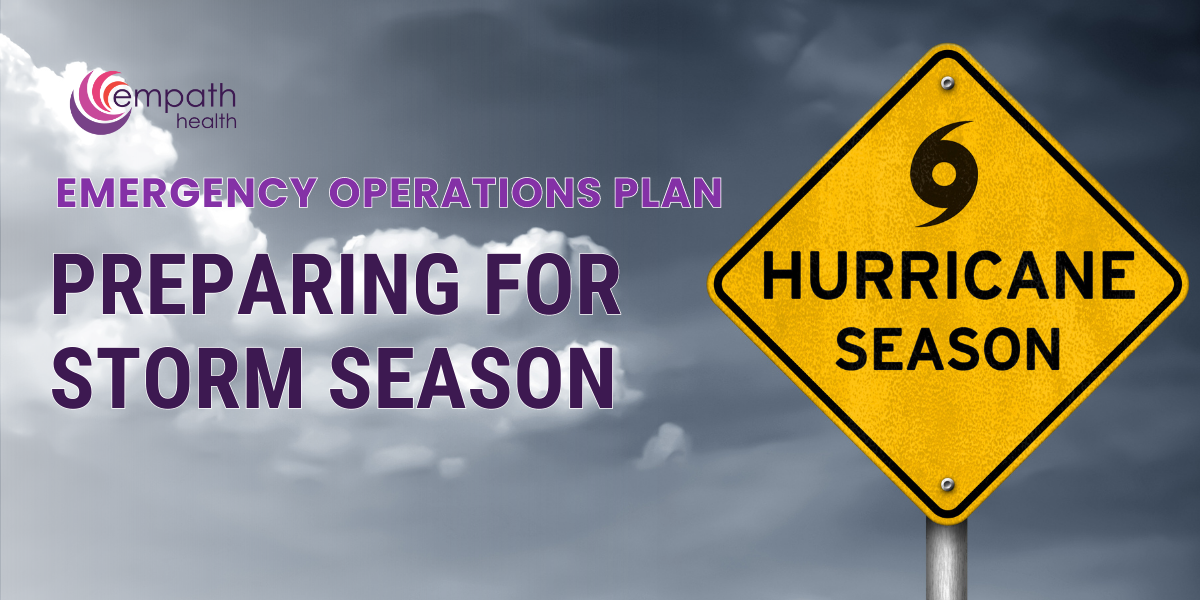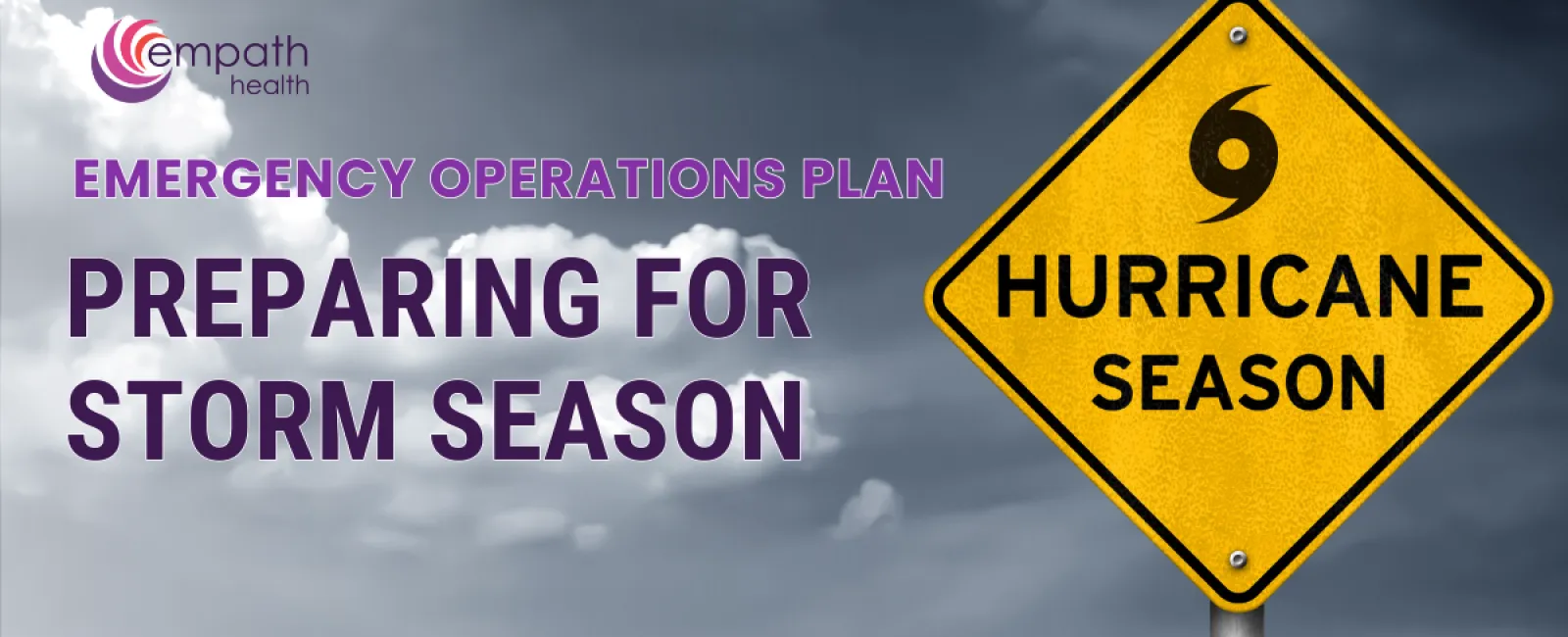Like most residents and organizations along Florida's Gulf Coast, Empath Health is busy today making final preparations for Hurricane Idalia, expected to make landfall early Wednesday.
Fortunately, emergency operations at Empath Health represent much more than a one-day sprint to beat the clock.

Matt Chaloux, VP of Mission Care and Support Services
The emergency management leadership team is in place all year round. And it follows a detailed playbook for preparation, training and education, all in an effort to ensure the safety and health of the organization's patients, clients, participants, colleagues and volunteers as well as their families. More than 26,000 people in 13 Florida counties are enrolled in Empath Health services.
Is Empath Health ready for Idalia, which will arrive less than one year after Hurricane Ian caused severe damage in the southern region of Empath's service area?
"We are," said Matthew Chaloux, Vice President of Mission Care and Support Services and the Incident Commander for Empath's Emergency Operations Plan. "When we think of Emergency Operations Plans, you would prefer to have a tabletop exercise twice a year in a comfortable, air-conditioned room with a warm cup of tea. But as of late, the need for tabletops has been replaced with real-life events and with each event, we learn what went as planned and what could have gone better. We revise the plan and how we execute it and are better prepared with each new event. Idalia is no different. We are ready to serve our community no matter what."
Kerry Hoerner, Chief Hospice Administrative Officer
As a healthcare organization, Empath Health meets emergency operations regulations established by the Centers for Medicare and Medicaid Services, Florida Agency for Healthcare Administration and its individual service lines' accrediting bodies.
The Empath Health Emergency Operations Plan features four main components:
- Emergency Plan: Based on a hazard and vulnerability analysis, the plan is reviewed and updated annually.
- Policies and Procedures: Based on the emergency plan, risk assessment and communication plan, policies and procedures are reviewed and updated annually.
- Communication Plan: The plan complies with federal, state and local laws and is reviewed annually.
- Training and Testing: A training and testing is implemented and reviewed and updated (as needed) at least annually.
The Emergency Management Plan uses a management system known as the Incident Command System (ICS). The ICS provides an organizational structure capable of responding to various levels of emergencies ranging in complexity. It also provides the flexibility needed to respond to an incident as it escalates in severity.
Chaloux was named the Incident Commander earlier this year. He has six section chiefs who lead teams within designated areas of Empath Health.
Each of Empath Health's colleagues undergoes training and testing of the Emergency Operations Plan at orientation, through annual education, emails, periodic drills, real events, and after-action reports.
"Any plan, no matter how well thought out comes down to the people who execute it," Chaloux said. "In my short tenure at Empath Health, I have been so taken by the compassion, dedication and level of care provided to our patients and their families from everyone across the organization. When it comes to emergency management as an Incident Commander, you can't write those characteristics into a plan. There is a confidence that exists that our colleagues on the front lines in the throes of an event like Hurricane Ian are doing all they can to provide compassionate care, comfort and protect them."
When it comes to the care of patients and clients, Empath Health makes sure there is an emergency plan in place, beginning at admission. Following are the care priorities laid out in the Emergency Operations Plan:
- Do patients/clients have a generator; do they qualify for a special-needs shelter?
- Oxygen needs for high-priority oxygen patients.
- Preparation of Hospice Houses/Care Centers.
- Assurance patients have necessary medications and supplies for 14 days.
- Generators for Hospice Houses/Care Centers and some administration offices.
- Plan for getting clinicians back on the road as soon as possible.
- Prioritization of patients for care restart.
"The hospice interdisciplinary team skillfully coordinates patient care needs during an emergency event, working directly with our patients, their loved ones and facility partners," said Empath Chief Hospice Administrative Officer Kerry Hoerner, one of the emergency operations section chiefs. "This includes developing individualized emergency plans, provision of necessary durable medical equipment, medications and supplies."
So as the clock runs down on final preparations for Idalia, Empath Health doesn't just hope for the best, but also has a tried and true plan for meeting the needs of its treasured patients, clients, participants, colleagues and volunteers.
